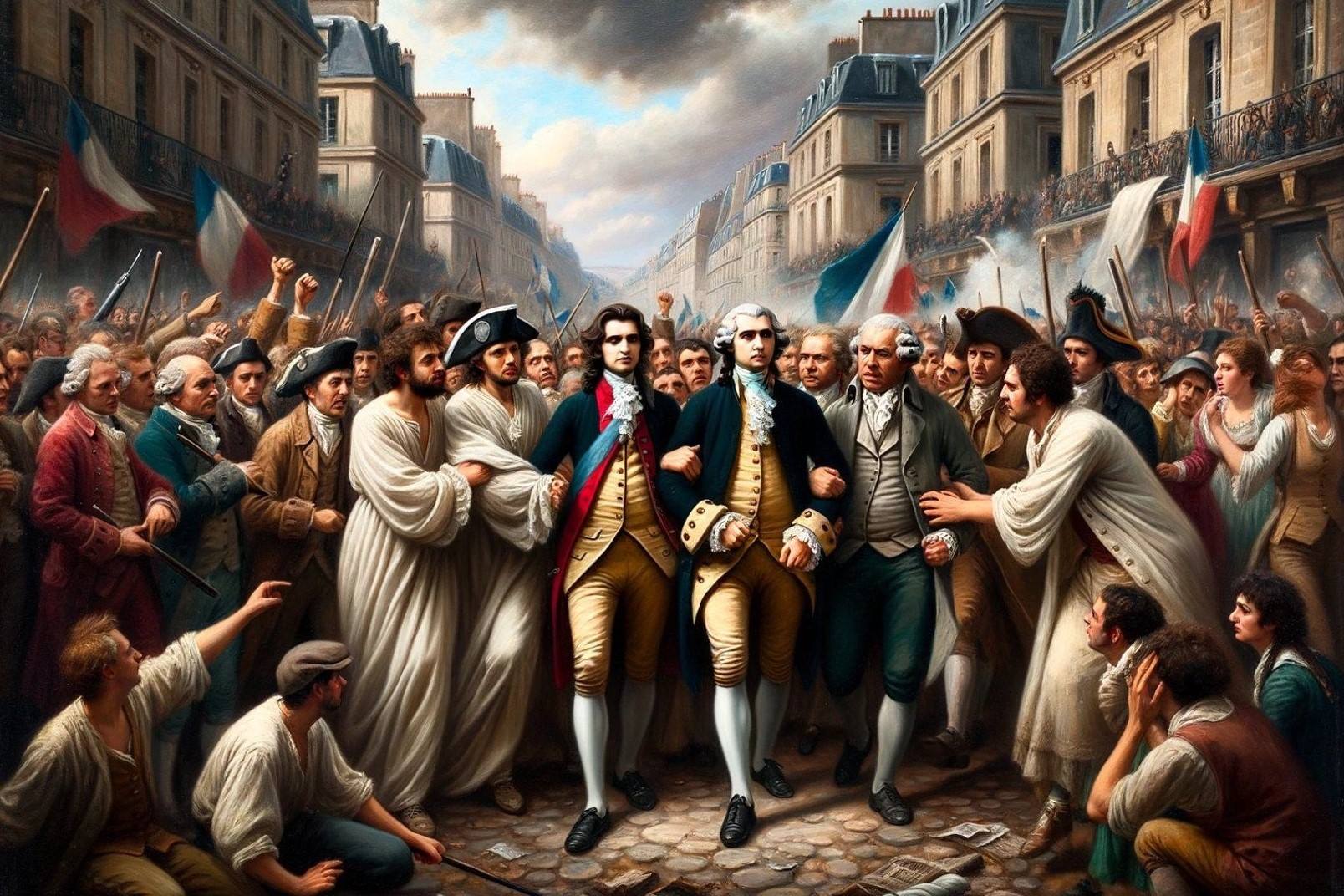
The French Revolution, a pivotal moment in history, reshaped not only France but also the world. Why was the French Revolution so significant? Its impact lies in the dramatic changes it brought to society, politics, and ideas. This period saw the overthrow of monarchy, the rise of republicanism, and the birth of modern democratic ideals. For anyone curious about how a revolution could alter the course of history, understanding these 13 facts will provide a comprehensive overview. From the storming of the Bastille to the Reign of Terror, each fact reveals a layer of complexity about this transformative era. Whether you're a history buff or a curious learner, these insights will deepen your appreciation for the power of collective action and the quest for liberty, equality, and fraternity.
The French Revolution: A Turning Point in History
The French Revolution, which began in 1789, was a period of radical social and political upheaval in France. It had far-reaching effects on the country and the world. Here are some fascinating facts about this pivotal event.
Causes of the French Revolution
Several factors contributed to the outbreak of the French Revolution. Understanding these causes helps explain why the revolution was so impactful.
-
Economic Hardship: France faced severe financial problems due to costly wars and extravagant spending by the monarchy. The country was on the brink of bankruptcy.
-
Social Inequality: French society was divided into three estates: the clergy, the nobility, and the commoners. The commoners, who made up the majority, were burdened with heavy taxes while the other two estates enjoyed privileges.
-
Enlightenment Ideas: Enlightenment thinkers like Voltaire, Rousseau, and Montesquieu promoted ideas of liberty, equality, and fraternity. These ideas inspired the revolutionaries.
-
Poor Harvests: Bad weather led to poor harvests in the late 1780s, causing food shortages and high prices. This added to the suffering of the common people.
Key Events of the French Revolution
The revolution was marked by several significant events that shaped its course and outcomes.
-
Storming of the Bastille: On July 14, 1789, revolutionaries stormed the Bastille prison in Paris. This event is often seen as the start of the revolution and is celebrated as Bastille Day in France.
-
The Reign of Terror: From 1793 to 1794, the revolution entered a radical phase known as the Reign of Terror. Led by Robespierre, thousands of people were executed by guillotine for being perceived enemies of the revolution.
-
The Rise of Napoleon: The revolution eventually led to the rise of Napoleon Bonaparte. In 1799, he staged a coup and became the ruler of France, ending the revolutionary period.
Impact of the French Revolution
The revolution had profound effects on France and the world, influencing future political and social movements.
-
Abolition of Monarchy: The revolution led to the abolition of the French monarchy. King Louis XVI was executed in 1793, and France became a republic.
-
Declaration of the Rights of Man and of the Citizen: This document, adopted in 1789, laid out fundamental rights and freedoms. It became a cornerstone for future human rights movements.
-
Spread of Revolutionary Ideas: The ideas of the French Revolution spread across Europe and the world, inspiring other revolutions and movements for democracy and equality.
-
Changes in Social Structure: The revolution dismantled the feudal system and reduced the power of the nobility and clergy. It promoted the rise of the bourgeoisie and a more merit-based society.
Cultural and Symbolic Legacy
The French Revolution left a lasting cultural and symbolic legacy that continues to be felt today.
-
The Tricolor Flag: The revolution introduced the tricolor flag of blue, white, and red, which became the national flag of France. It symbolizes liberty, equality, and fraternity.
-
La Marseillaise: The French national anthem, "La Marseillaise," was composed during the revolution. It remains a powerful symbol of French patriotism and revolutionary spirit.
Piecing Together History's Puzzle
Diving into the French Revolution's depths, we've uncovered truths and debunked myths, painting a vivid picture of a pivotal moment in history. This journey through time reveals the revolution's complexity, its impact on society, culture, and politics, and how its echoes are still felt today. Understanding these 13 facts gives us a clearer view of the revolution's significance, reminding us of humanity's relentless quest for freedom and equality. As we reflect on these insights, let's appreciate the lessons learned and the progress made, acknowledging the sacrifices of those who dared to dream of a better world. History, after all, isn't just about the past; it's a guide for the future, offering invaluable lessons for today's world.
Was this page helpful?
Our commitment to delivering trustworthy and engaging content is at the heart of what we do. Each fact on our site is contributed by real users like you, bringing a wealth of diverse insights and information. To ensure the highest standards of accuracy and reliability, our dedicated editors meticulously review each submission. This process guarantees that the facts we share are not only fascinating but also credible. Trust in our commitment to quality and authenticity as you explore and learn with us.


